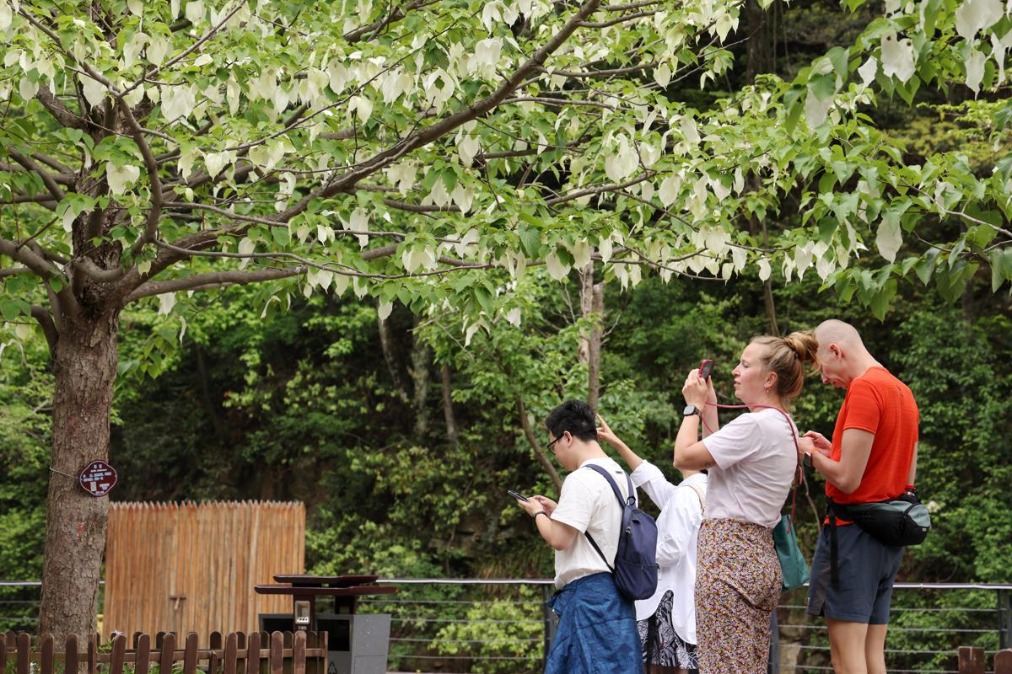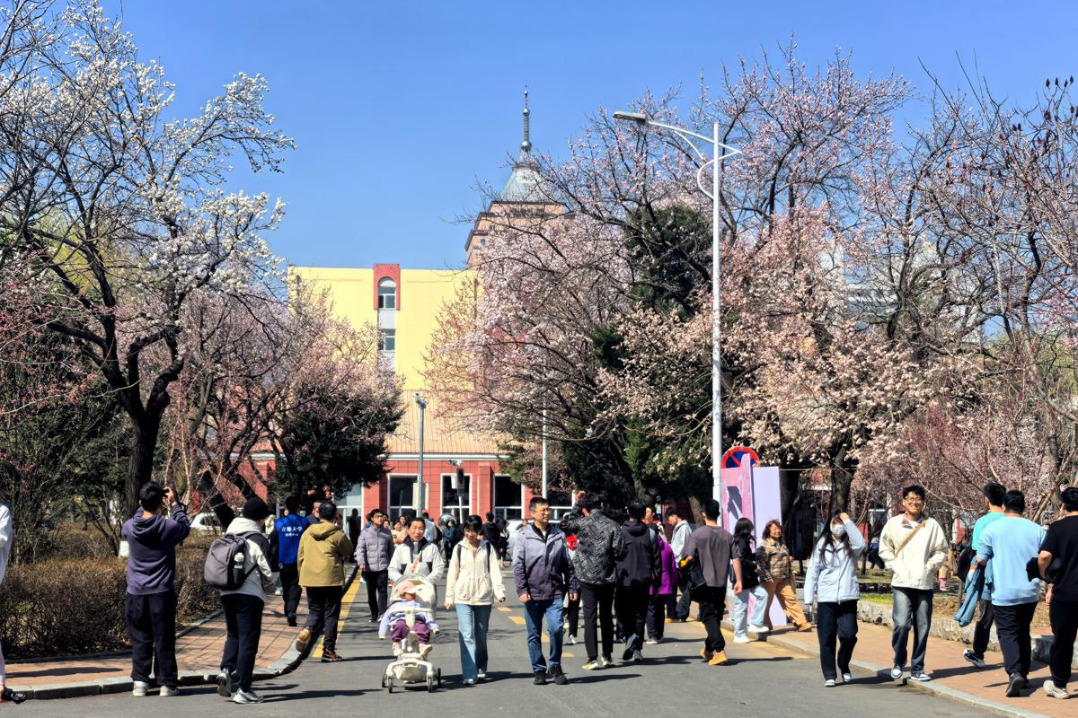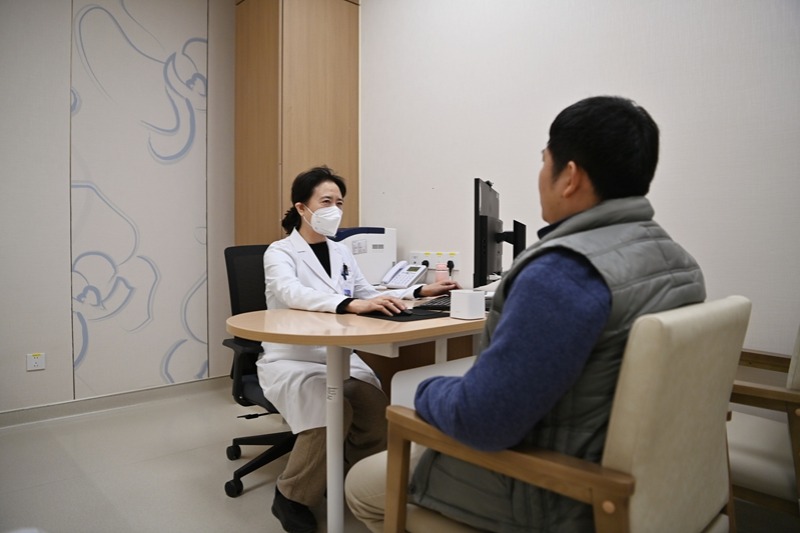Shopping spree for herbal drug irrational

Experts have advised against the irrational purchase and consumption of a common herbal flu medicine after two medical research institutions said preliminary research results showed that it had the potential to inhibit the growth of the novel coronavirus, but highlighted the need for additional research and a clinical trial.
The Shanghai Institute of Materia Medica and the Wuhan Institute of Virology, both institutes under the Chinese Academy of Sciences, said in an online statement on Friday night that the oral liquid of shuanghuanglian, a common traditional Chinese medicinal compound made from several herbs, might be a general-purpose antiviral drug that can suppress the virus's growth.
While the drug has proved to yield similar effects on other coronaviruses such as severe acute respiratory syndrome (SARS) and Middle East respiratory syndrome (MERS), as well as on some influenza strains, it still needs to undergo a clinical trial to determine whether it is truly effective against these diseases, they said.
The clinical trial will take place at the Shanghai Public Health Clinical Center, as well as the Tongji Medical College of Huazhong University of Science and Technology in Wuhan, Hubei province, according to the announcement.
The center said in a statement on Saturday night that it had just begun clinical observation of the drug as a therapeutic option, and it does not recommend healthy people take the medicine for disease prevention.
Liu Qingquan, president of the Beijing Hospital of Traditional Chinese Medicine, told media in Wuhan on Saturday that it is unnecessary for uninfected people to take this medicine. Moreover, the drug's effect on the novel coronavirus still needs confirmation from clinical trials.
A Beijing medical expert who requested anonymity said the inhibiting effect of the drug was most likely discovered by soaking infected cells with the medicine in a petri dish.
"This is a common and a very early-stage procedure in medical research to see how the drug functions on a cellular level in a controlled environment," he said. "But what works for cells does not mean it can work in more complex biological systems such as in test animals or humans. People who read the headlines may think the medicine could prevent or cure the virus, which isn't true."
On Saturday, photos of people lining up at pharmacies at night to buy the remedy went viral on Chinese social media. Searching for the medicine on e-commerce platforms such as Taobao, JD and Suning has yielded no results, meaning the product has either sold out or has been pulled from the platforms.
Further complicating matters, there is a poultry farm medicine also called shuanghuanglian, and some consumers reported on social media that they had bought the wrong drug and urged others not to ingest the one intended for animal use.
The Beijing expert said scientists will test dozens of existing drugs to see how they interact with the pathogen, and many may have an inhibiting effect on the virus. On Jan 25, the Shanghai Institute of Materia Medica said it had found 30 such drugs, which included 12 anti-HIV medications.
"We do this not because we are looking for an available cure, but because we are hoping to understand how the virus works, how the active ingredients of a drug can affect its replicability," he said. "This will provide valuable insight and serve as a guide when producing a cure or vaccine, but the tested drugs are not an actual cure themselves."
Shortly after the announcement on Friday, doubts about shuanghuanglian's potency against the coronavirus quickly emerged.
Dingxiang Doctor, a health information sharing platform, published an article on Saturday discouraging the use of the oral remedy for viral prevention and cure, citing the lack of clinical evidence to prove the drug's effectiveness against the virus.
- Kite fliers honor Weifang's peace legacy
- Guangdong key industries to hunt for talent nationwide
- Nyingchi city's peach blossom season draws record tourists
- China's geospatial platform introduces 18 specialized datasets
- China makes big progress in helium exploration
- Guizhou's mega-bridge sets fire safety milestone





































